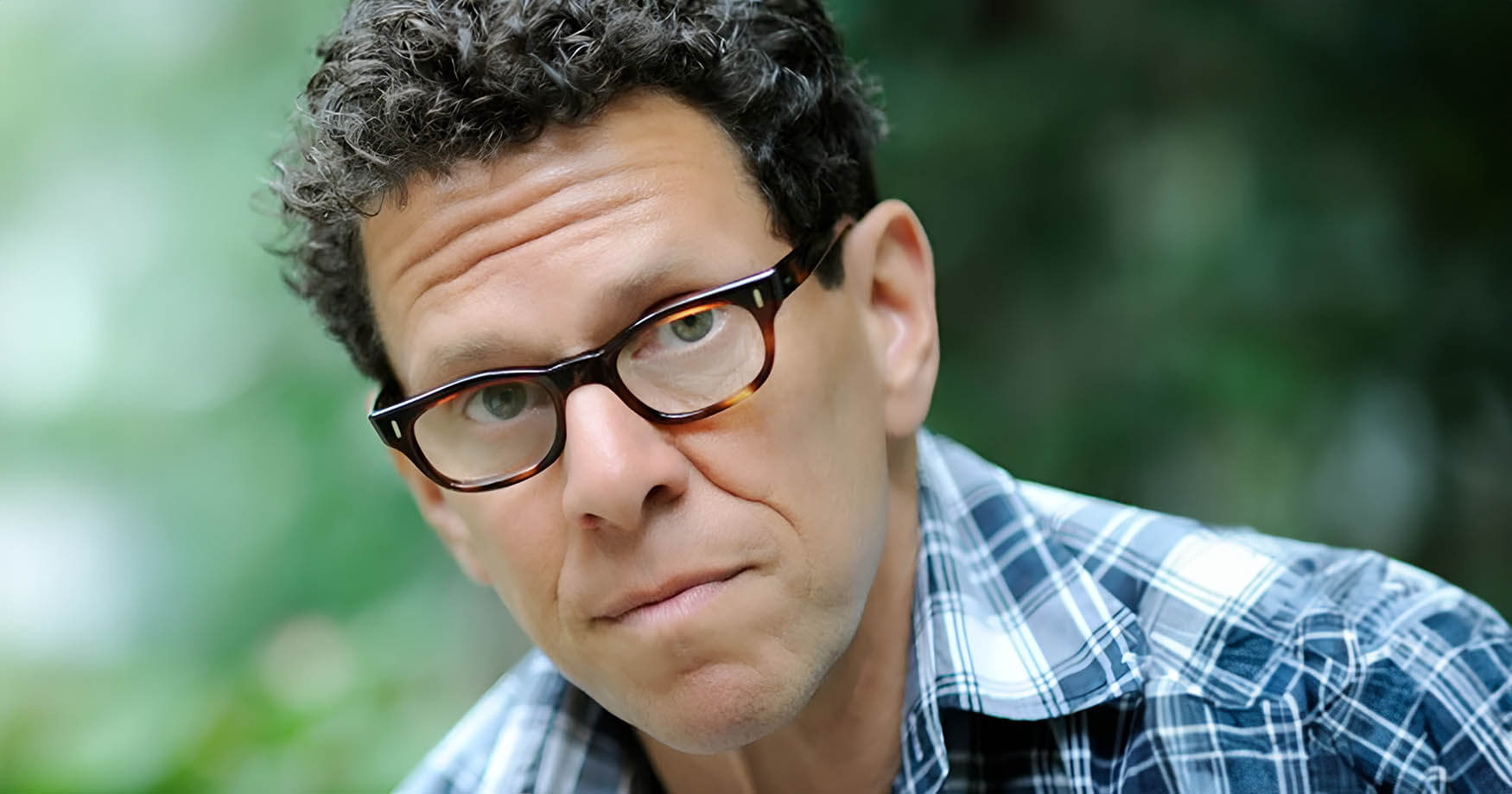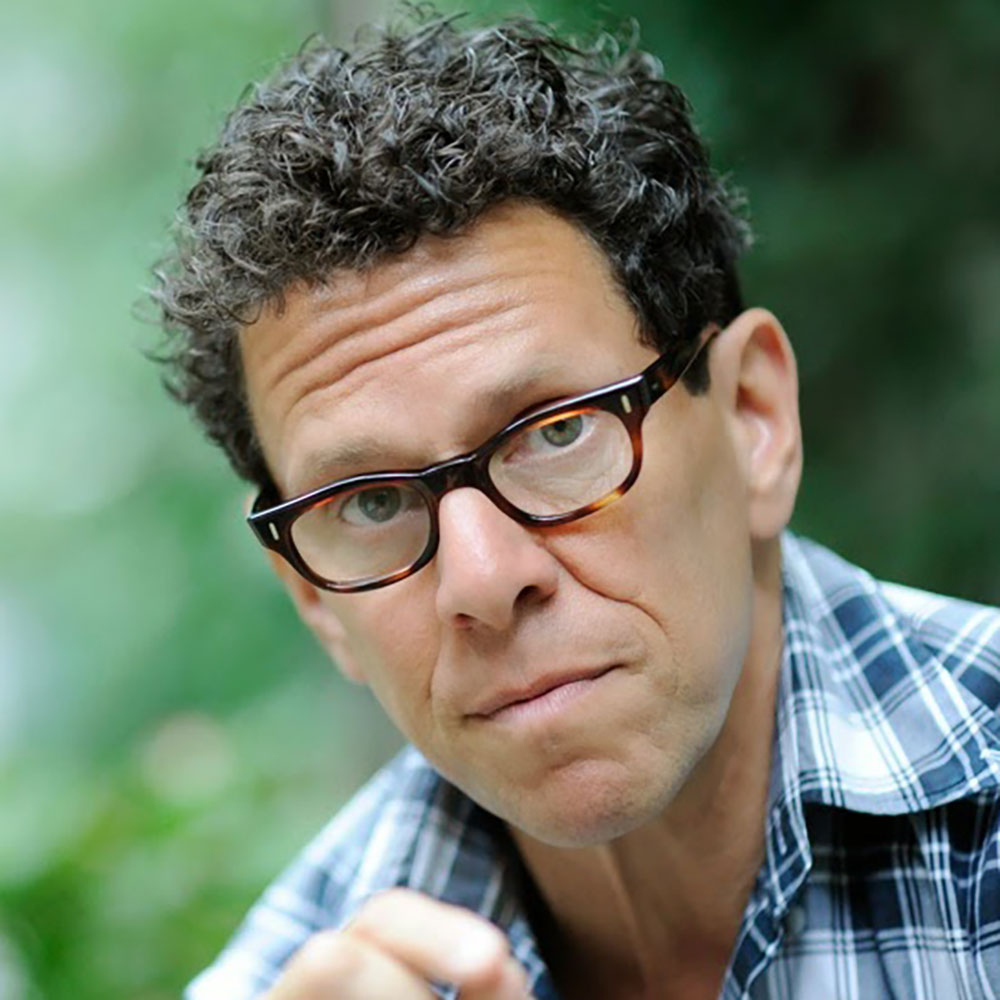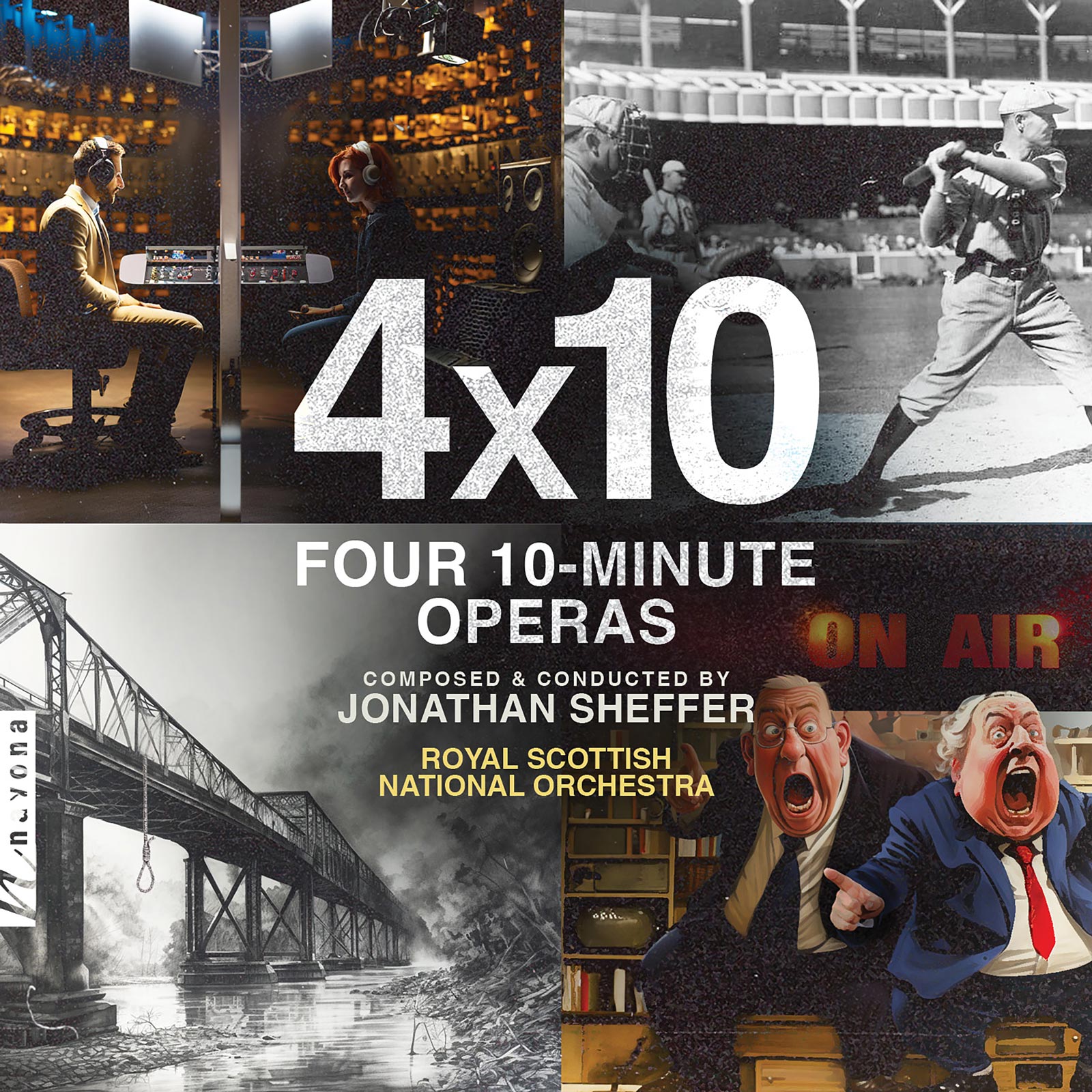
FOUR TEN-MINUTE OPERAS by Jonathan Sheffer explores perspectives from the American Civil War, pitfalls of dating in the digital age, religious commentary in the face of tragedy, and a dramatic retelling of a fatal baseball pitch. Conducted by Sheffer himself, each of these 10-minute operas tells an engaging tale that’s sure to strike a chord.
Today, Jonathan is our featured artist in the “Inside Story,” a blog series exploring the inner workings of our composers and performers. Read on to learn about the conditions in which he best finds a creative spark, and the late Bernstein performance that resonates with him to this day…
Take us on a walk through your musical library. What record gets the most plays? Are there any “deep cuts” that you particularly enjoy?
When I was in high school I had Mozart piano concertos, Joni Mitchell’s Blue, and Buffalo Springfield in heavy rotation. In my 20s I discovered opera, and that was my soundtrack for years: Britten, Verdi, and Puccini primarily. Long after the technology obviated vinyl and then CDs, I sold my record collection to a wealthy Israeli, and later visited my old collection in his house in Caesarea. When COVID-19 hit, I cocooned with my children and all I wanted to hear was Bach keyboard music. Murray Persia became a sort of God to me then.
What’s the greatest performance you’ve ever seen, and what made it special?
There is no single great performance, just as there is no such thing as a “favorite composer.” A performance may affect one at a particular time due to extra-musical influences, either personal or global. For some reason, the one of the final performances of Leonard Bernstein in New York with the Philharmonic in 1989 stays with me, as every appearance of his in those last years seemed epochal. There was a moment of visceral power in his reading of Francesca da Rimini that I can still muster.
What musical mentor had the greatest impact on your artistic journey? Is there any wisdom they’ve imparted onto you that still resonates today?
I have been fortunate to have many mentors, great teachers all, even if that was not their specific title. My contact over many years with Bernstein illuminated every aspect of music, from composing to conducting. Stephen Sondheim saw promise in my writing and was a North Star of sorts. John Corigliano gave me tools to create with and Michael Tilson Thomas taught me how to study a score. Without these men I was just a person with a good ear.
Where and when are you at your most creative?
I have always been most creative when I had a reason to be. The excitement of collaboration — on a theater piece or a movie — invites the intimacy of collaboration. Whether an orchestral piece or chamber music, these things need a commission and a deadline to get the blood pumping. As for where, I spent years with a pencil hunched over a piano desk. Now I sit at the computer with multiple screens watching the notes materialize as I create.
How do you prepare for a performance?
How a conductor prepares is the part of the iceberg no one sees. Under the water there’s a lifetime of maturing taste followed by a brief period of intensive study. Scores need to be broken down to phrases before they can be rebuilt like a car. Operas begin with memoizing libretti, then layering on the vocal lines, and finally, the orchestra. Only then can the performance be visualized musically, and realized in person.

Jonathan Sheffer is a Grammy-nominated composer and conductor whose diverse career in music spans the worlds of classical, opera, dance, and film and television. Born in New York City, Sheffer graduated from Harvard University, where his teachers included Leonard Bernstein, and later attended The Juilliard Extension School and the Aspen School of Music.
Sheffer’s range of works comprises television and feature film scores, works for orchestra, solo piano, concertos, musicals, and short operas. In addition to several scores for Hollywood films, including Encino Man, Pure Luck, A Shallow Grave and others, his most recent films include the documentaries Mann v. Ford (HBO) and the German/Israeli film, The Decent One, which premiered at the Berlin Film Festival.

